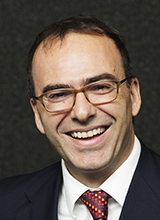
The London Spinoza Circle is very pleased to welcome Dimitris Vardoulakis.
When? 15 June, 2023: 3-5pm
Where? The Dreyfus Room, which can be accessed through 26 Russell Square, WC1B 5DT.
Title: Toward a Monist Politics: The Distinction Between Causality and Instrumentality in Spinoza
Abstract: There are two seemingly intractable difficulties besetting Spinoza scholarship. One concerns book V of the Ethics. How is it that a radical materialist ends up celebrating the intellectual love of god, which appears to be a re-introduction of transcendence, a lapse into “talking whereof one must remain silent”? The second difficulty concerns the relation between Ethics and the Theological Political Treatise, or, which amounts to the same thing, the relation between Spinoza’s ontology and his political philosophy. The relation matters because Spinoza holds that everything is in god, substance or nature, which challenges the traditional separation of fields of philosophy, such as ontology and politics. Vardoulakis shows that Spinoza actually address the issue of the relation between the Ethics and the Treatise in a seemingly minor comment, which however, if read in its right context, sheds new light on both of the difficulties.
Biography: Dimitris Vardoulakis was the inaugural chair of Philosophy at Western Sydney University. Some of his books are Sovereignty and its Other (2013); Stasis Before the State: Nine Theses on Agonistic Democracy (2018); Spinoza, the Epicurean: Authority and Utility in Materialism (2020); and, The Ruse of Techne: Heidegger’s Magical Materialism (2024). He is the co-editor of the book series “Incitements” (Edinburgh University Press) and of the new journal Philosophy, Politics and Critique. He is currently serving as the chair of the Australasian Society for Continental Philosophy.


 We are very lucky to have Alison Peterman, from the University of Rochester, coming to us for the next session on 19 May. Don’t miss it!
We are very lucky to have Alison Peterman, from the University of Rochester, coming to us for the next session on 19 May. Don’t miss it! Quite a few papers on Spinoza (and many on other interesting topics) at the Scottish Seminar in Early Modern Philosophy happening later this week.
Quite a few papers on Spinoza (and many on other interesting topics) at the Scottish Seminar in Early Modern Philosophy happening later this week. We are very pleased to welcome
We are very pleased to welcome  We are fortunate to have Eric Schliesser (University of Ghent / University of Amsterdam), presenting on:
We are fortunate to have Eric Schliesser (University of Ghent / University of Amsterdam), presenting on: